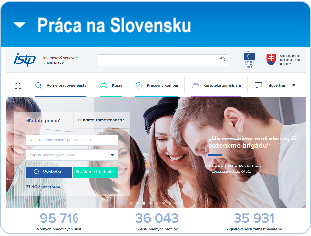Slovak News Back to the news
Meseznikov: One-Third of Laws Passed in Fast-Tracked Procedure
Thursday 15 April 2010 Zoom in | Print page
Bratislava, April 15 (TASR) - Almost one-third of all legislation passed by the Slovak Parliament in the first quarter of 2010 was passed via the co-called fast-tracked procedure, analyst Grigorij Meseznikov from the Institute for Public Affairs (IVO) said at a press conference on Thursday.
IVO levels criticism at the Parliament for using 'the fast-track' so often, and it changes laws with indirect amendments too often. "It's a matter of political culture in Slovakia. The future government can say that they will pass laws this way, because their predecessors did too. And once this bad habit becomes part of Slovakia's political scene, there are concerns that the current Opposition will proceed the same way if it comes to power," said IVO sociologist (and former Slovak ambassador to the US) Martin Butora.
He added that there is a difference between the approach of Mikulas Dzurinda's former governments and Robert Fico's Government today. During the Dzurinda era, the Opposition managed to pass the Act on Origin of Property Disclosure, submitted by Robert Fico, and a number of Robert Kalinak's proposals. However, in the current parliamentary term, the Opposition hasn't been able to pass a single proposal.
According to Meseznikov, the level of democracy is in the doldrums – or has even slightly deteriorated lately. "Some legislation passed by the ruling Coalition contains a strong tinge of ideology and serves to polarize society such as, say, the Patriot Act - which was vetoed by the Slovak President but will resurface later this month in Parliament," he said.
IVO reports that there are problems in Slovakia's judiciary itself. "Also, representatives of political power and judiciary are pursuing legal action against media, with some rulings of regulation bureaus, especially those of the Council for Broadcasting and Retransmission (RVR), becoming a legitimate cause for concern," said Meseznikov.
Along with Butora, Meseznikov takes potshots at Slovakia's stagnation in relations with Hungary, while viewing the approach of Slovak officals towards the visit of Russian President Dmitry Medvedev in Bratislava as biased. "The visit also had a historical-political dimension, whether in the celebration marking the 65th anniversary of liberation of Bratislava or the joint declaration of the two Presidents. The document in question is unbalanced, however, as it overestimates the role Russia played in the fight against Nazism, while lacking any mention of problematic parts of our mutual history - not only during the era of Stalinism, but also particularly the Soviet aggression in August 1968," according to IVO's written statement.
All rights reserved. Any publishing or further dissemination of press releases and photographs from TASR's resources without TASR's prior written approval constitutes a violation of the Copyrights Act.












